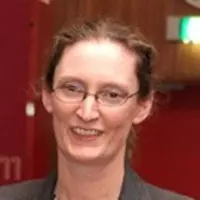Large scale distributed routing engine using CPD search
This project addresses urban congestion by utilising people’s travel plans to coordinate journeys. The project expects to generate new knowledge in scalable optimisation, based on innovative modelling of urban transport, and tested on historical data from Melbourne. The expected outcomes of the project are an active transport database and optimised mode choice and routing system, with predicted reductions in congestion based on simulation of its use. This timely project aims to design an urban trip advisory system, that could be followed by automated vehicles as well as human drivers, to dramatically reduce the financial and environmental cost of current urban congestion.
Urban congestion costs in excess of $16B in 2015, and worsens annually with increasing city populations. Public transport reduces congestion, but very often makes journey times unacceptably long. This project introduces personalised public transport, to reduce journey times and meet the preferences of travellers. The new technology, based on coordinated scheduling and routing, aims to reduce the number of vehicles on the roads, improve travel time predictability, and minimise pollution. Combined with automated vehicles it will revolutionise urban transport.
Benefits
Metropolitan areas face major challenges posed by private traffic. Fixed-route public transport services are only practical for trips along train or bus routes, and fully mobile members of the public. Spatio-temporal coverage is a problem that increases with the distance from the city centre. This work benefits society and the economy, by highlighting a personalised transport alternative with affordable shared trip options and train-integrated trips. The service introduced lends itself for implementation with a fleet of autonomous vehicles, at a time when autonomous vehicle technology is becoming viable in practice. There is urgency in the topic given the growing populations of Australian cities.
The question of the effects of a personalised public transport system (PPTS) on travel times under different assumptions is relevant not only to Australia, but to many countries with fast growing urban areas and insufficient public transport. The simulation tool will thus be made available to the public and to other researchers; to adapt extend and perform further studies.
Another benefit is the development of algorithms that can integrate journeys quickly to create shared trips and under short notice. Such techniques are valuable to many service providers, such as the goods delivery sector. Algorithms that can choose quickly among different options will be similarly valuable.
Simulating diverse scenarios with different levels of participation in PPTS, and different proportions of use of transport modes, will help investors and authorities decide which services to offer in order to alleviate metropolitan mobility problems.
Participants
Monash
Contact: [email protected]

Chief Investigator

Principal Researcher

Research Fellow
Swinburne
Contact: <init><last>@swin.edu.au

Senior Researcher

Senior Researcher

PhD Candidate
Related publications
- Bono, M., Gerevini, A. E., Harabor, D. D., & Stuckey, P. J. (2019). Path Planning with CPD Heuristics. [PDF]